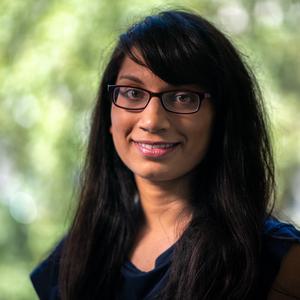For an equal future, engineering needs risk takers
Categories: QEPrize Ambassadors
23 June 2020
Author: Kalita Patel

My name is Kalita and I graduated with a masters in chemical engineering in 2014 from the University of Birmingham. I am now a Process Engineer working within the Food and Beverages Industry.
For this year’s International Women in Engineering Day, I chose ‘risk takers’ as my key ingredient to ensure engineering has an equal future.The reason I chose this ingredient is that women have been shown to be, on average, less likely to apply for jobs unless they meet all of the advertised requirements. However, without taking the risk to apply for roles that I was not fully qualified for, I would neither have had the experiences that I have had nor would I be the engineer that I am today. In this article, I will talk about how those experiences have shaped my career path, and reached beyond it, as well as the diverse and supportive teams that I have had the good fortune to work with along the way.
I started my engineering career as a summer placement student within a Research & Development department at an analytical laboratory manufacturer, Malvern Instruments. This was my first experience in an industrial workplace setting and I had a lot to learn! One of my biggest lessons was learning to take risks. At first, I did not have the technical knowledge to carry out the 10-week project I was given, so I had to apply my logic and problem solving to get the job done.
This placement taught me an invaluable lesson – that taking on a role in an area of engineering which I did not understand well was a risk, and that it was also essential to learn and grow. This first taste of a group environment proved to be the catalyst for my exciting, challenging, and diverse career to date.
One of the things that helped me most was that I worked with a very diverse team, surrounded by scientists and engineers of many backgrounds from the UK, US, and Sweden.
I’ve worked in three organisations since Malvern Instruments, and with a diverse range of colleagues. My experiences taught me how to work in a team and that there is something to learn from engineers of all backgrounds.
My first placement in the food industry also involved taking a risk. After Malvern Instruments, I went on to do a year-long industrial placement at PepsiCo where, again, I did not have the technical knowledge or expertise. Over the twelve-month placement, I put my previous skills of teamwork into practice and gained the technical skills required to become competent at the role, and apply my knowledge independently.
Once I had graduated from university, another risk awaited – applying for job roles and experiences that would enable me to grow personally and professionally. Through my previous experiences, and through having worked with engineers that were both like and unlike me as team members, I had learned that the opportunities that I found most challenging – particularly ones where I do not have all the skills to do the role – are the ones that could be the most valuable to my career if I take a risk and apply.
Risk-taking has also enabled me to go into areas of engineering that I had never imagined before. In 2018, through the Women in Engineering Society (WES), I learnt of the overseas wind turbine volunteer programme through the charity, WindAid. WindAid is an educational institute whose projects provide electricity to developing communities, utilizing wind energy to provide a clean and reliable source of electricity in locations where traditional electricity is not available.
Inspired by my contacts at WES, I took another risk and volunteered in the two-week wind turbine installation programme in Northern Peru, where students and professionals from around the world worked together designing, building, and installing wind generators. Each project contributed to the evolution of the design or reinforced the solidity of the design concepts. This iterative process and collaborative attitude created an encouraging environment of education and innovation. I drew on and further developed my teamwork, leadership, communication, and problem-solving skills in this programme. Again, this was a project where I had no previous technical knowledge. I had the once-in-a-lifetime opportunity to assist with the build and installation of a mall wind turbine to provide electricity for a local church.
These experiences, teams, and projects that I have been involved in over the past ten years have taught me on countless occasions that risk-takers are needed in the modern world of engineering. INWED is a great reminder that we need a mix of qualities to solve complex global challenges and that varied gender, culture, race, and technical backgrounds create a stronger set of engineers to tackle the new problems we face.

More on the author, Kalita Patel
Kalita is a process engineer with a Masters degree in Chemical Engineering from the University of Birmingham. She currently works within the Foods and Beverages Sector at PepsiCo.



